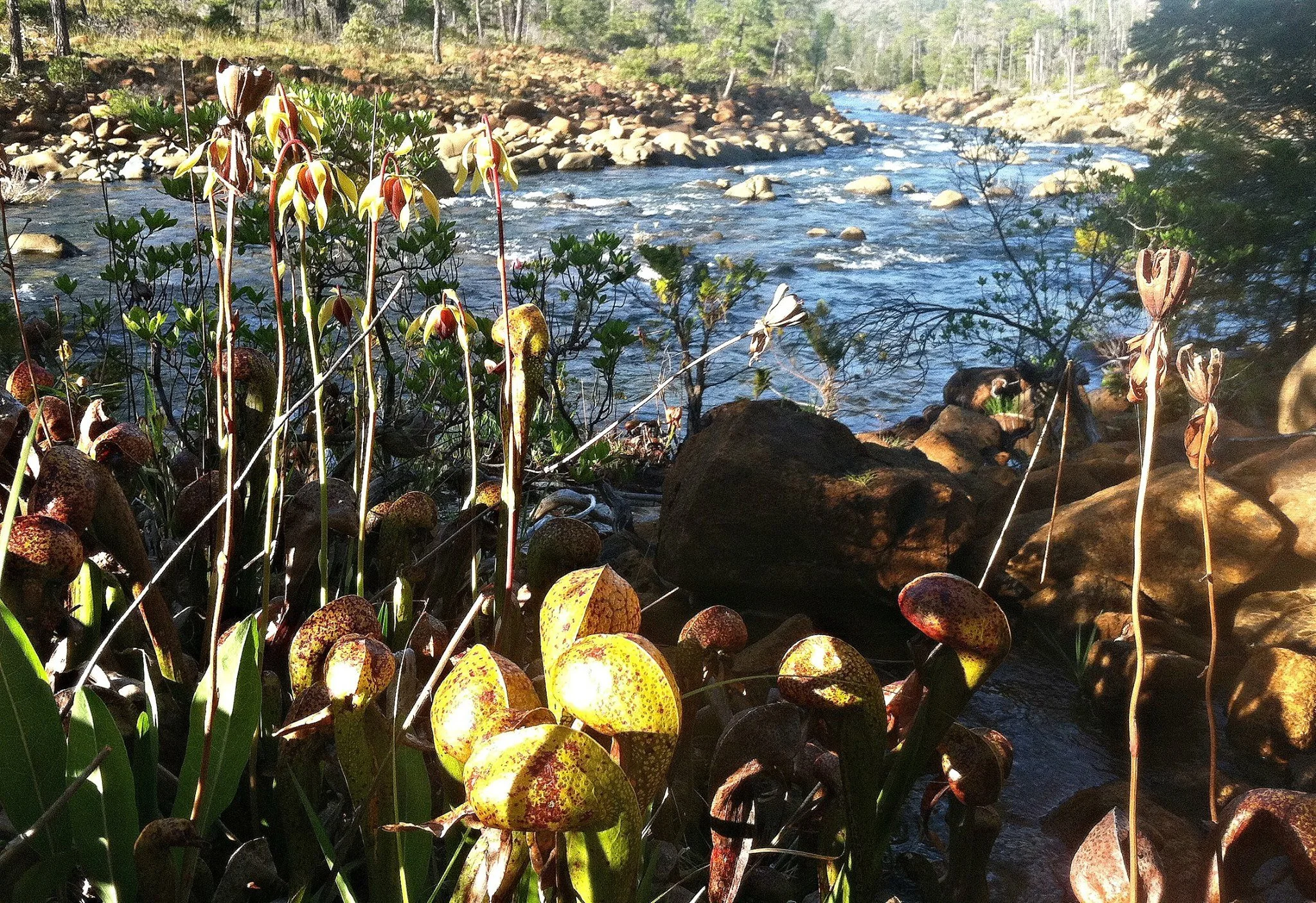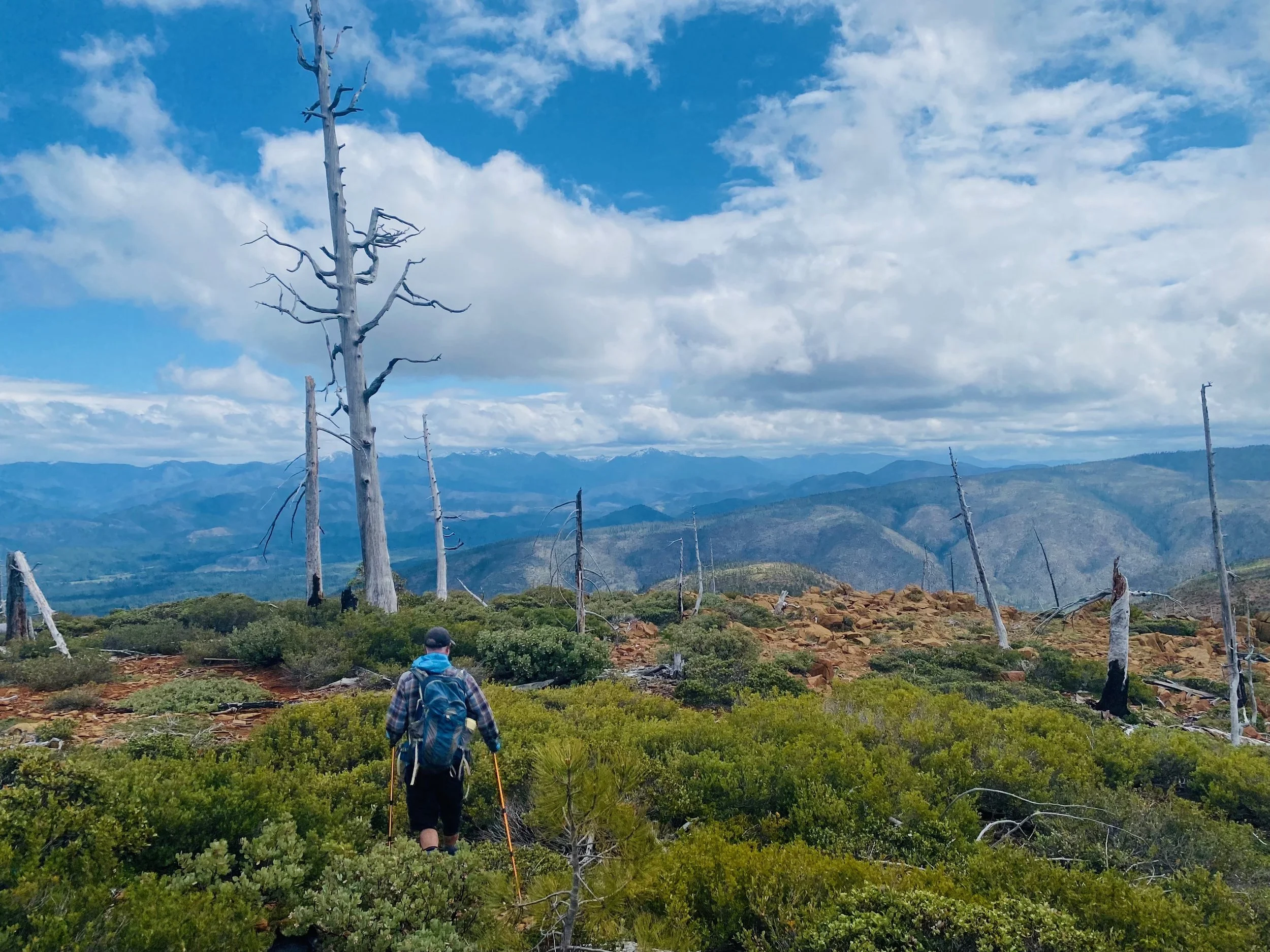Protecting forests in the Klamath-Siskiyou
KS Wild’s work over the past decades has kept tens of thousands of acres of native forests standing
The Klamath Siskiyou Mountains are home to some of the most spectacular forests in the world. Dense old growth forests, towering pines in oak woodlands, and alpine meadows all mix together in this world-class ecoregion. Our region borders the coastal Redwood forests (with the tallest trees in the world) to the west and the mighty Douglas fir forests of the Cascade Range in the east.
KS Wild focuses on public forests, mostly in the Rogue and Klamath River watersheds. Our trained staff and volunteers monitor public lands management on eight million acres (a forested area larger than the state of Maryland!). These public lands include the Medford and Klamath Falls Bureau of Land Management, and the Klamath, Six Rivers, Shasta-Trinity, and Rogue River-Siskiyou National Forests. Our goal is to protect the remaining wildlands, watersheds, and wildlife while encouraging restoration of forests that have been damaged by logging, mining, and development.
Safeguarding Wildlands
Covering nearly 11 million acres, the Klamath Siskiyou ecosystem includes the mountains, forests, and watersheds of the iconic Rogue, Smith, and Klamath Rivers. Most of these wildlands belong to you and are managed as public resources by the Forest Service, BLM and Park Service. These rugged wildlands are a priceless treasure that is the collective legacy of all Americans.
Southern Oregon and Northern California are Home to the Largest Remaining Network of Wilderness Areas on the West Coast. Read more about biodiversity in the Klamath-Siskiyou wildlands and why it’s worth protecting: Safeguarding Wildlands
Safeguarding Wildlife
The forests, wildlands, and rivers of the Klamath-Siskiyou provide refuge for a remarkable variety of wildlife. Northern spotted owls still nest in our ancient forests. Pacific fishers still roam the vast backcountry. Salmon and steelhead still migrate down our wild rivers and return to mountain streams to spawn. Read more about KS Wild’s efforts to protect imperiled species and critical habitat: Safeguarding Wildlife
Forest Watch Blog:
We are fortunate that the vast forests of the Klamath-Siskiyou continue to provide an immense variety of habitats and recreational opportunities. Much of the private, state, and county forests have been previously logged. Clear-cut logging and forest plantations of Douglas fir are commonly seen when flying above the state's forests.
Damaged by Clearcuts
Widespread clear-cut logging has destroyed old-growth habitat, ruined watersheds, and converted native forests throughout southern Oregon and northern California into biologically sterile tree plantations. Virtually all of the private, state, and county forests in the region have been clearcut and continue to be managed for timber production. The intact native forests that anchor the land and water of the region are found on lands owned by all Americans and managed by the U.S. Forest Service and the Bureau of Land Management.
The good news is that, unlike much of North America, the Klamath-Siskiyou still has large networks of wildlands and intact forests capable of acting as "source populations" for at-risk species. But ongoing old-growth logging and post-fire salvage timber sales continue to remove habitat and connectivity for rare old-growth dependent species.















